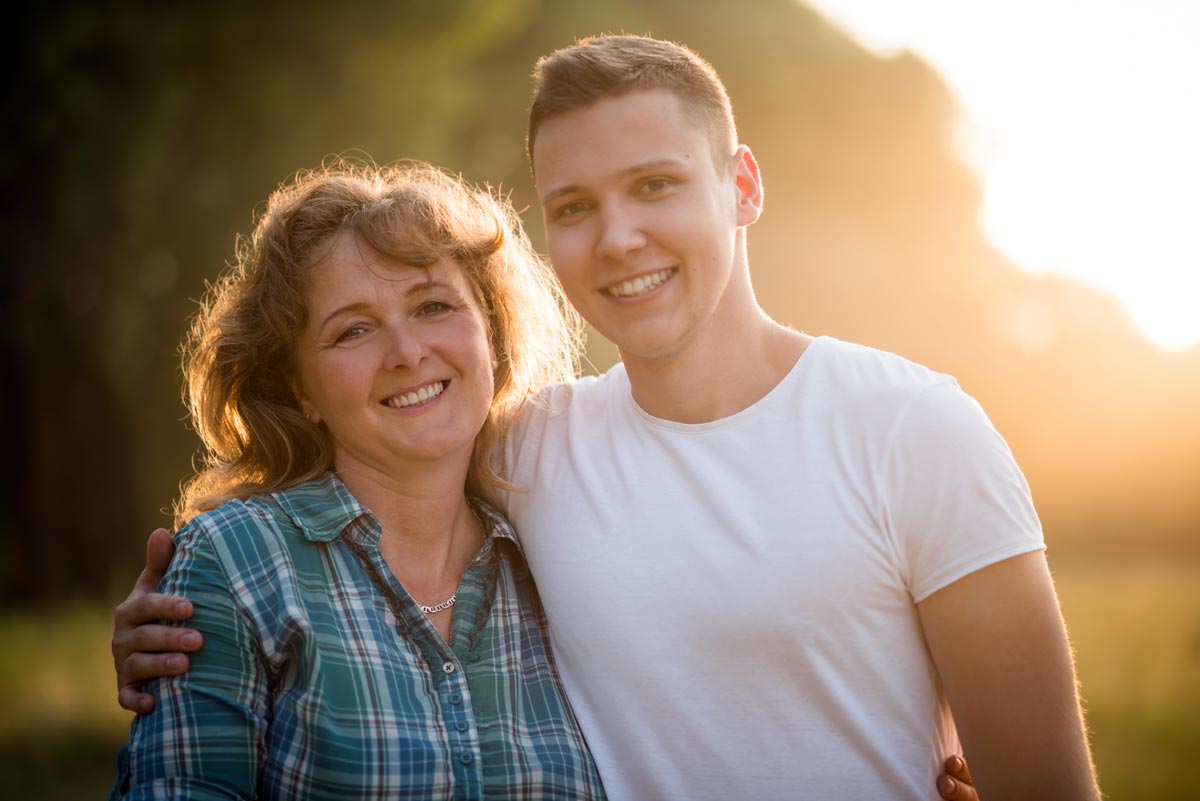7 Tips for Mothers of Adult Addicts
 Watching your child succumb to an addiction can feel like losing your children to any other disease. Addiction is a mental health disorder that significantly disrupts every part of a person, from their mental and physical health to their personality and behavior. As a mother, that can be heartbreaking to watch, especially as you realize you can’t do anything.
Watching your child succumb to an addiction can feel like losing your children to any other disease. Addiction is a mental health disorder that significantly disrupts every part of a person, from their mental and physical health to their personality and behavior. As a mother, that can be heartbreaking to watch, especially as you realize you can’t do anything.
Today, some 42.5 million Americans struggle with drug and alcohol addiction. Every one of those people has had parents, who often watch them struggling. In fact, substance use disorders or addiction are most common in people aged 18 to 25. As a mother watching your child struggle with addiction, you’re far from alone.
Still, it can feel that way, and taking time to learn about addiction, to get help yourself, and to cope with the stress put on your family and your relationship with your child by addiction is important.
1. Accept That Things Have to Change
Addiction changes people. In addition, no one becomes addicted to a drug or to alcohol because their life is perfect. Whatever was wrong in your child’s life is going to have to change for them to be able to recover. In addition, the child that you knew isn’t coming back. No matter how much you want things to be exactly as they were before the addiction, that will never happen.
In addition, the sooner you can accept that and move on to grieve the child you’ve lost, the sooner you can take steps to start embracing the child you have now, and the child you will have when they get help and move into recovery. They might have dramatically changed personality, might not have time for you, or might want to invest in significant changes to their lifestyle and family relationships. That’s going to come as part of their recovery.
Often, getting help means getting treatment for mental health problems treating underlying problems with self-esteem or trauma, and learning to cope with stress, relationships, and emotions. All of those can significantly change a person without also factoring in that your child has probably experienced significant trauma while being addicted, and that also changes them.
2. Understand How You Impact Addiction
Parents, especially mothers, are quick to blame themselves when their children become addicted. After all, you raised them like this, right? Wrong. You may have played a role in your child’s addiction, but it was their choices and their exposure to drugs or alcohol that resulted in them using and becoming addicted. Chances are, there’s no one involved who should feel guilt or blame in the sense of taking responsibility for someone becoming addicted. Instead, your child has to take responsibility for their addiction in that they are the only one who can end it.
Here, you can play a major role. And, that’s normally because mothers get in the way of their children taking that responsibility. If you’re taking the blame, they don’t have to. If you’re trying to do everything for them, they don’t have to take responsibility. And, if you’re paying the rent, taking care of their chores, cooking for them, or even making excuses for them to others, you’re enabling them to keep using. Ending that cycle can be extremely difficult, not just because it can feel like letting them down. Instead, addicts will often guilt trip and manipulate you into keeping up that care because they realize they need it. Stepping away from cycles of enabling will allow your child to take responsibility for themselves.
3. Learn About Your Child’s Addiction
Addiction is complicated and rarely comes from a single reason to use. Instead, it relies on a complex mix of exposure, genetics, epigenetics, mental health, environment, social and economic status, and stress. If someone’s friends or families use drugs or abuse alcohol, they are more likely to do so themselves. So, taking time to learn about those causes, how addiction actually works, and how recovery works can help you to better understand their journey.
Importantly, it can also help you to remove ideas of social stigma and judgement that most of us are taught. Addiction is often seen as a personal failing, despite the fact that it’s a behavioral disorder. Understanding how it actually works can help you to talk to your children without judgment, which will help you to move them towards getting help.
Get Your Questions Answered
4. Ask for Help Yourself
 Watching your child get sick and struggle is extremely difficult, even if they’re in the hospital and are actively getting help. With addiction, that’s rarely the case, and you’re more likely facing stress watching them take risks and hurt themselves. On top of that, you’ll often have to face them manipulating you, lying to you, and becoming irritable, angry, and aggressive. If you live with them, those problems can be significantly worse.
Watching your child get sick and struggle is extremely difficult, even if they’re in the hospital and are actively getting help. With addiction, that’s rarely the case, and you’re more likely facing stress watching them take risks and hurt themselves. On top of that, you’ll often have to face them manipulating you, lying to you, and becoming irritable, angry, and aggressive. If you live with them, those problems can be significantly worse.
Dealing with that can be stressful and traumatic. It’s important that you take time to get help yourself. Whether that’s therapy so you can talk things through or self-help groups where you can talk through problems with people who know where you’re coming from, you need help. Al Anon is one support group, however, there are dozens of other groups specifically designed for the family members of addicts. You’ll also want to ensure that you make time for yourself, that you maintain your boundaries, and that you have outlets like talking to your friends and family.
5. Don’t Fall for Tough Love
Tough love is an old approach to “helping” your loved ones when they’re addicted. Here, the idea is that when someone is addicted, they won’t recover until they hit “rock bottom”. So, the advice is to kick them out of your house, refuse to talk to them, refuse to bail them out of jail, and mostly stop being their parent until they get themselves together. That tactic doesn’t work and instead pushes people to use more, often results with them being homeless, and can result in increased risks of overdose, violence, and death.
Instead, the thing that pushes people into recovery is the knowledge that people care about them, that they have things to look forward to when clean and sober, and that they are valued as people. The best path to getting your child to recovery isn’t to force them to fend for themselves, it’s to offer emotional support and love – without enabling them to use at the same time.
6. Accept You Cannot Force Change
As parents, most of us remember fighting with our kids to get them to go to the dentist and no matter how much they protested, they always had to go. That tactic doesn’t work on adults. In addition, rehab is often about self and personal motivation. They have to want change. They have to know what they’re fighting for. And they have to be invested. While motivation and acceptance therapy can help people to find that motivation, you can’t force your adult children into it.
That’s one of the most difficult things you’ll have to face as a parent. You can’t do anything that they don’t actively want and ask for. If they do, you can help by offering guidance, by driving them to rehab, by making arrangements, by attending family therapy with them. Until then, you can’t do anything. And accepting that role as a supporter who’s on their team but powerless to force change is important if you’re going to cope with that role.
7. Work Towards Professional Treatment
You can’t force your child into professional treatment. However, you can offer them the option, talk to them about it, and ask them to think about it. You can offer nonjudgmental support, you can share options and what different types of therapy are for, and you can talk about how you want your child to invest in recovery so that they can be safe and they can take care of their future.
That may take time. Some people will need an intervention or other people to get them to move into rehab. However, you can lay the groundwork for getting them there by offering support, by sharing options, and by consistently sharing that you want them to recover and to be healthy.
Watching your children struggle can be extremely difficult, especially when it’s addiction. Unfortunately, you can’t solve their problems for them. However, you can take care of yourself and them while you work towards getting them treatment.